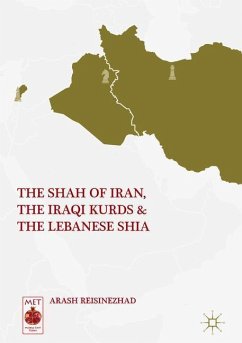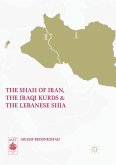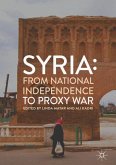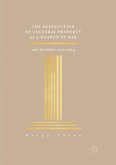This book sheds new light on the emergence and fluctuation of Iran's connections with non-state entities in the Middle East. Iran's involvement with political-militant non-states has been at the heart of international and regional security policy for more than three decades. The author analyzes Iran's non-state foreign policy by focusing on specific geopolitical and geocultural threats and opportunities that pushed Tehran to build strategic ties with the Iraqi Kurds and the Lebanese Shia. This project will appeal to multiple audiences interested in geopolitics of the Middle East, Iran's foreign policy, and international relations.
Bitte wählen Sie Ihr Anliegen aus.
Rechnungen
Retourenschein anfordern
Bestellstatus
Storno








